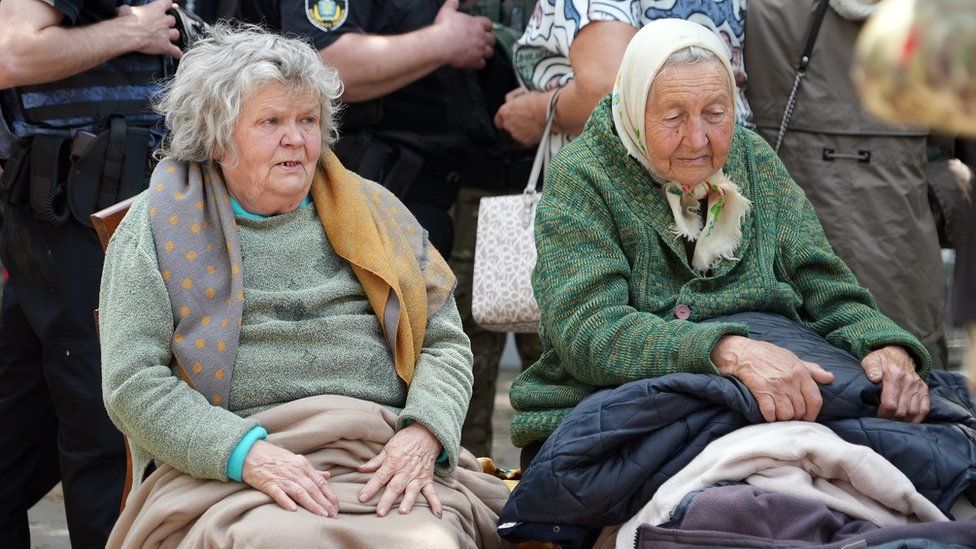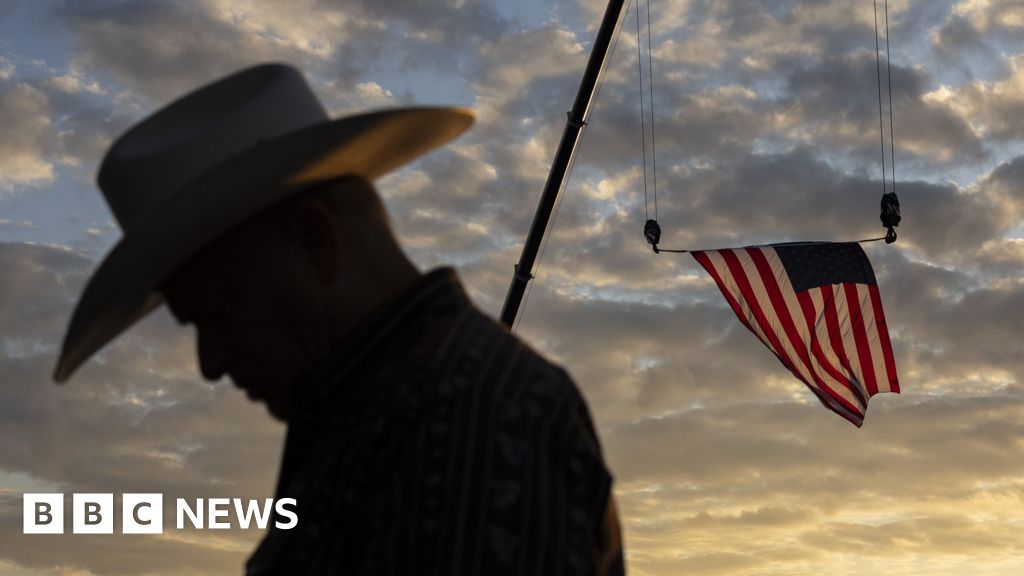ARTICLE AD BOX

Maryna and Valentyna had been stranded in Russian-occupied Ukraine
By James Waterhouse
BBC Ukraine Correspondent in Kherson
Maryna and Valentyna's southern Ukrainian village of Kardashynka is an innocuous place.
A quaint collection of houses in the marshy lowlands of the Dnipro River's eastern bank, under Russian occupation.
Even with the liberation of Kherson city last November, the neighbours hadn't been able to cross the river to go there because of bridges being destroyed.
In a chain of events few could predict, they finally made that journey this week, while being rescued from the recent catastrophic floods.
"A boat was passing, we started shouting and waving," says Maryna.
Much of her surrounding area has been devoured by the Dnipro since the destruction of the Khakovka dam upstream.
Their homes sit close to this watery front line which separates Ukrainian-controlled and Russian-occupied territory.
"We've been waiting for help," says Maryna. "Valentyna is 86, I'm 76 but with many illnesses.
"It's been very difficult. There was no power, no reception, it was like we were on an uninhabited island."
She becomes emotional and begins to weep.
Viktor Kovalenko's wife was killed by shelling a few days ago
They're joined by their friend Viktor Kovalenko, whose wife was killed by shelling across the river a few days ago.
Before being rescued, he had to collect her death certificate from the Moscow-installed officials who now rule his neighbourhood.
"I buried her next to my mother. I told her to wait for me," he says.
The pain he's experiencing is visceral.
"I kept cursing the Russians in their faces. I don't know how they didn't kill me. If only you knew how great our life was together. Now I have no wife, no house, nothing."
The eastern bank has seen the worst of the flooding, and it's clear Maryna, Valentyna and Viktor are the lucky ones.
Hundreds of people there have been posting on the Telegram app asking to be rescued from there.
"Help me please!" writes Svitlana, who says there are 35 trapped people at an address. "They're all on a nearby roof, children are screaming and crying," she says.
"Three days without food and water, we are dying slowly. Please, please."
On one local list, published on Friday, we've seen the names of 150 people who are reportedly missing.
Aliona posts: "Asking urgently! There is a 1939-born grandmother and 1958-born disabled woman. They need to be evacuated! Help!"
Our team called several numbers of people who said they were stuck on the Russian side, but there was no answer.
Viktor has been helping to evacuate people
Dozens of people across Ukraine have responded with their addresses and an offer to provide accommodation after their rescue.
Ukraine's military says it has been co-ordinating rescues from the eastern bank, but claimed "fearless volunteers" were carrying out some of the evacuations.
On board one rescue boat, as we weave through the vast expanse of Kherson's flooded port, volunteer Viktor tells us he came under Russian fire while attempting such a trip.
"The problem is, Russian soldiers are waiting there and waiting for volunteers or soldiers to arrive so they can shoot them," explains Viktor as he offers a lift to people trapped in their apartment blocks.
The BBC has not been able to independently verify these claims.
"Even now, working is difficult. At this very moment, Kherson is under attack. There was also shelling on the island, a rocket struck 30m away from us."
In the last few days of reporting from Kherson, the city has come under increased shelling and the military administration has advised volunteers not to venture out on to the water.
But that hasn't deterred people like Viktor, who continues to search for those trapped, still in need of help.
(Additional reporting by Rachael Thorn and Daria Sipigina)

 1 year ago
19
1 year ago
19








 English (US)
English (US)